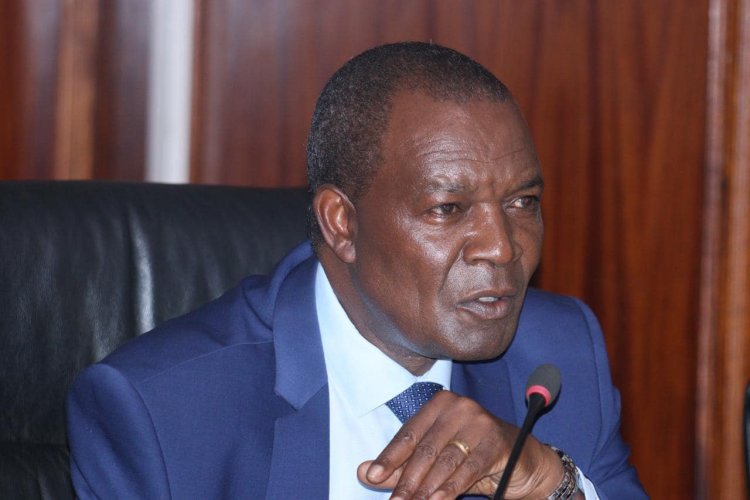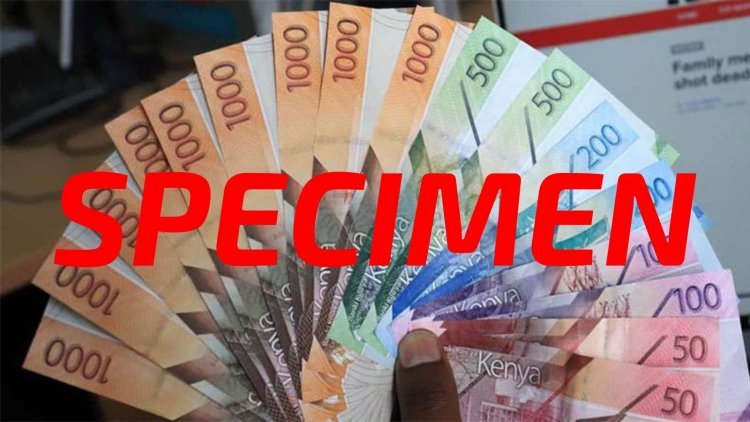CS Ndung'u Changes Tune On Failure Of G2G Oil Deal
The CS, in a statement, sought to clarify the text quoted from the International Monetary Fund (IMF) report as he accused the media of misrepresenting facts.

National Treasury Cabinet Secretary (CS) Njuguna Ndung’u clarified on Friday, January 19 that the government-to-government deal it signed with Saudi Arabia oil companies was meant to ease pressure on the foreign exchange market and not the contrary as widely reported.
The CS, in a statement, sought to clarify the text quoted from the International Monetary Fund (IMF) report as he accused the media of misrepresenting facts.
"Our attention has been drawn to news items in the sections of the media regarding the government's involvement in a government-to-government oil import arrangement. We condemn in the strongest possible terms the misreporting and express our profound concern over the deliberate misinterpretation of the text within the International Monetary Fund (IMF) report, particularly under the Memorandum of Economic and Financial Policies," the statement read in part.
Ndung'u explained that the importation of petroleum through a Government to Government arrangement (the G-to-G arrangement) was one of the key measures that the Government of Kenya initiated in early 2023 to avoid an economic shutdown due to supply constraints that existed then and in particular US Dollar liquidity problems.

A car being fuelled at a petrol station. /FILE
At the time, the monthly demand for US Dollars by the petroleum sector was about 500 million per month which had put a strain on the country's forex reserves threatening the security of supply of petroleum and other critical sectors such as food and agriculture that also heavily rely on imports. In addition, the interbank forex market was dysfunctional.
The CS who committed to setting the record straight on the nature and purpose of the government's participation in the government-to-government (G to G) oil import arrangement, revealed that the initiative was implemented as a temporary measure with the primary objective of stabilizing the market and alleviating foreign exchange market pressures.
"Contrary to misleading assertions, the government's eventual exit from this arrangement has always been part of the strategic plan to pave the way for private sector players to assume a more prominent role. The suggestion that the government's exit is a noteworthy development is unfounded, as it aligns with the pre-established timeline and objectives of the initiative," he added.
According to the CS, the assertion that the government has admitted failure in the G-to-G approach is a gross misinterpretation and that the quoted text in the IMF report specifically addresses the anticipated increase in rollover risk associated with private sector financing facilities supporting the arrangement, a predictable outcome given the inherent dynamics of such financial structures.
The G to G arrangement had thus come in to stabilize the macroeconomic environment by providing an extended credit period for petroleum imports, that is, 180 days compared to the initial 30 days and this freed about 30% of the country's forex to other sectors of the economy. As a result, the depreciation of the Kenya Shilling slowed down as demand for US Dollars declined gradually.
He further noted that the absence of a framework like the G to G would have sunk the country's economy at a period when the Federal Reserve rate rose to the highest in 22 years leading to capital flight from many frontier markets and which could have exacerbated the US Dollar liquidity issues and led to rapid depreciation of the Kenya Shilling.
Ndung'u underscored that the country's economy recorded immense benefits from the G-to-G arrangement for instance the backlog of swaps to the tune of 500 million US Dollars has now been cleared.
"Further, since the commencement of the G to G arrangement, the country and the region at large have enjoyed security of supply of petroleum products and there have been no instances of product stock outs as had been witnessed just before the arrangement. The country's supply has always been aligned to demand and no breach of contract has been cited by the international oil companies," he remarked.
The G-to-G arrangement, he added, has a clear operational framework that spells out the investment protocol for funds collected from the market and the foreign currency conversion protocol.
Shortfalls that may result from the foreign currency conversion process at the time of payment for imports are compensated by the interest from the investment of the funds. Also, a Treasury and Risk Management Committee oversights the investment and foreign currency protocols to forestall any perceived financial risks.
The G-to-G arrangement was initially planned to run for 9 months from April 2023 but was later extended by 12 months to December 2024 after an evaluation of the macroeconomic environment towards the end of the initial period, a matter the CS said will perfect the process of G to G further.
"The National Treasury re-affirms the importance of the G to G arrangement to the country's economy and hereby assures all concerned stakeholders of full Government support until the obligations in the current contracts are extinguished," Ndung'u concluded.
The G2G deal which was launched by President William Ruto in April 2023 was billed as Kenya's solution to stabilise the shilling against the dollar.







